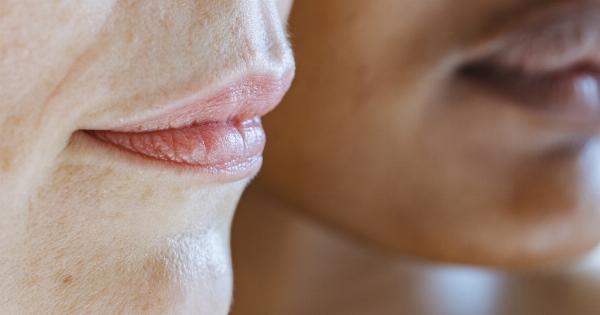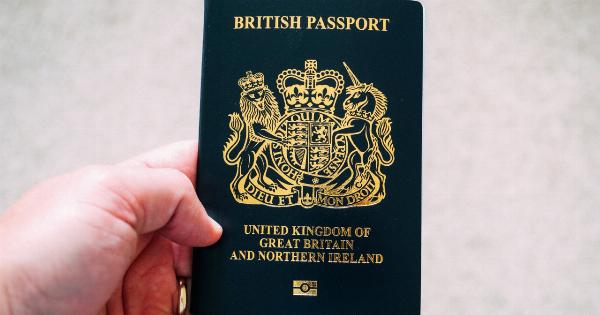Kronitovirus is a newly discovered viral infection that belongs to the family of coronaviruses. It was first identified in [insert date/year] and has since spread rapidly worldwide, causing a global health pandemic.
2. How does Kronitovirus spread?
Kronitovirus primarily spreads through respiratory droplets when an infected person coughs, sneezes, or talks. It can also spread by touching contaminated surfaces and then touching the face, eyes, nose, or mouth.
3. What are the common symptoms of Kronitovirus?
The common symptoms of Kronitovirus include fever, cough, sore throat, shortness of breath, fatigue, body aches, loss of taste or smell, and headache. Some individuals may also experience gastrointestinal symptoms like diarrhea or nausea.
4. How long does it take for symptoms to appear after exposure?
The incubation period for Kronitovirus is typically around 5-7 days but can range from 2-14 days. It is important to note that some individuals may be asymptomatic (showing no symptoms) but can still transmit the virus to others.
5. How is Kronitovirus diagnosed?
Kronitovirus can be diagnosed through various methods, including:.
– RT-PCR (Reverse Transcription Polymerase Chain Reaction) test, which detects the presence of the virus’s genetic material.
– Antigen tests, which identify specific viral proteins.
– Antibody tests, which detect past infection by measuring the presence of antibodies.
6. Where can one get tested for Kronitovirus?
Kronitovirus testing is available in various healthcare settings, including hospitals, clinics, diagnostic laboratories, and designated testing centers.
It is important to contact local healthcare authorities or use online resources to find the nearest testing facility.
7. Are there any specific risk factors for Kronitovirus infection?
While Kronitovirus can affect individuals of all ages, certain populations are considered at higher risk for severe illness.
This includes older adults, individuals with underlying health conditions such as heart disease, diabetes, or respiratory issues, and those with weakened immune systems.
8. Can Kronitovirus be transmitted by asymptomatic individuals?
Yes, asymptomatic individuals can still transmit Kronitovirus to others. This makes it crucial to follow preventive measures like wearing masks, practicing good hand hygiene, and maintaining social distancing, even if one feels healthy.
9. What precautions should be taken to prevent Kronitovirus transmission?
To prevent Kronitovirus transmission, it is recommended to:.
– Wear a mask in public settings, especially when social distancing is not possible.
– Wash hands frequently with soap and water for at least 20 seconds.
– Use hand sanitizers with at least 60% alcohol if soap and water are unavailable.
– Avoid close contact with individuals showing symptoms.
– Practice respiratory etiquette by covering mouth and nose when sneezing or coughing.
– Clean and disinfect frequently-touched objects and surfaces regularly.
10. Is there a vaccine available for Kronitovirus?
As of now, there are several vaccines that have been authorized and approved for emergency use to combat Kronitovirus. Vaccination plays a crucial role in reducing the spread of the virus and preventing severe illness.
11. Can animals transmit Kronitovirus to humans?
Although rare, there have been instances where animals have transmitted Kronitovirus to humans. It is advised to avoid close contact with animals, especially those showing respiratory symptoms, while maintaining good personal hygiene.
12. Are there any specific treatments for Kronitovirus?
Currently, there is no specific antiviral treatment for Kronitovirus. However, supportive care and management of symptoms are provided based on the individual’s condition.
Severe cases may require hospitalization and additional medical interventions.
13. Can Kronitovirus be prevented by antibiotics?
No, antibiotics are ineffective against viral infections like Kronitovirus. Antibiotics only work against bacterial infections and are not recommended for the prevention or treatment of viral illnesses.
14. Can Kronitovirus be contracted through food or food packaging?
There is currently no evidence to suggest that Kronitovirus can be transmitted through food or food packaging. However, practicing good food hygiene, such as washing hands before and after handling food, is always recommended.
15. Can wearing a mask protect against Kronitovirus?
Yes, wearing a mask is a crucial preventive measure in reducing the spread of Kronitovirus. Masks help in preventing respiratory droplets from being released into the air and offer some protection to the wearer as well.
16. Are there any long-term effects of Kronitovirus infection?
Some individuals who have recovered from Kronitovirus may experience long-term effects, often referred to as “long COVID.” These effects can include persistent fatigue, respiratory issues, cognitive problems, and other symptoms that can significantly impact daily life.
17. Can Kronitovirus be diagnosed through rapid tests?
Yes, rapid tests, including antigen tests, are available for diagnosing Kronitovirus. These tests provide quick results within a short span of time, typically within 15-30 minutes.
However, confirmatory testing through RT-PCR is often recommended for accurate diagnosis.
18. Should individuals who have received the Kronitovirus vaccine still get tested?
Yes, individuals who have received the Kronitovirus vaccine should still get tested if they develop symptoms or have been exposed to someone with a confirmed Kronitovirus infection.
Vaccination reduces the risk of severe illness, but breakthrough infections are still possible.
19. What is the difference between isolation and quarantine?
Isolation and quarantine are both measures used to prevent the spread of infectious diseases like Kronitovirus, but they have different purposes:.
– Isolation is for individuals who are already infected with Kronitovirus, either with symptoms or without, and separates them from healthy individuals.
– Quarantine is for individuals who have been exposed to Kronitovirus and may develop the infection, but are not yet showing symptoms. It helps prevent the potential spread of the virus during the incubation period.
20. Can Kronitovirus reinfect individuals who have already recovered from it?
While rare, reinfections with Kronitovirus have been reported. However, the immune response developed after the initial infection reduces the severity of reinfections in most cases.
21. Are there any travel restrictions due to Kronitovirus?
Travel restrictions may differ depending on the country and the prevailing circumstances. It is advised to consult official travel advisories and guidelines issued by health authorities before planning any travel.
22. How effective are face shields in preventing Kronitovirus transmission?
Face shields alone are not as effective as masks in preventing the transmission of Kronitovirus.
While they provide some protection to the eyes, nose, and mouth, combining them with a face mask offers better overall protection against respiratory droplets.
23. Where can one find reliable and up-to-date information about Kronitovirus?
Reliable and up-to-date information about Kronitovirus can be found on official websites of health organizations such as the World Health Organization (WHO) and national health departments.
It is essential to rely on credible sources for accurate information.






























